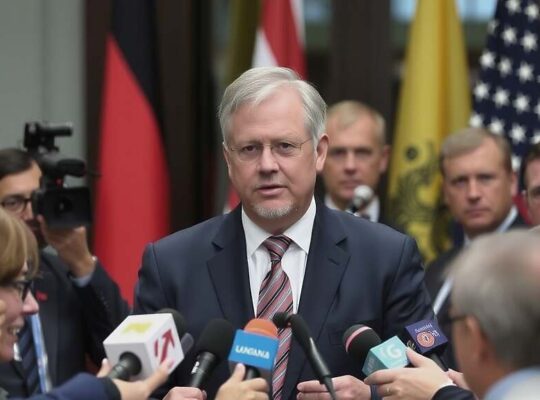Despite recent expressions of concern from Foreign Minister Johann Wadephul regarding the ongoing devastation in Syria, the German Interior Ministry, under the leadership of Alexander Dobrindt (CSU), maintains its commitment to resuming deportation flights to the war-torn nation. A spokesperson for the ministry, speaking to the Redaktionsnetzwerk Deutschland, confirmed the government’s adherence to the coalition agreement, which stipulates initiating deportations, prioritizing individuals with criminal records.
The ministry is currently engaged in negotiations with the Syrian government to facilitate these returns, suggesting a concerted effort to overlook the precarious conditions on the ground. Crucially, the spokesperson acknowledged the ongoing work of the Federal Office for Migration and Refugees (BAMF), which has, since late September 2023, begun processing asylum applications from Syrian men aged 18-45 who are deemed capable of working and traveling alone. This resumption of application processing, coupled with the planned deportations, highlights a policy shift towards stricter immigration controls.
Wadephul’s remarks, made during a visit to a heavily damaged suburb of Damascus, appear to create a significant tension with the Interior Ministry’s plans. The Foreign Minister visibly expressed shock at the scale of destruction, stating that a return for Syrian refugees “is not possible in the short term” and that the areas in question offered “very few opportunities for people to live a dignified life.
The divergence in messaging raises critical questions about the government’s risk assessment and the ethical implications of deporting individuals to a region suffering from protracted conflict and widespread destruction. While the coalition agreement provides a legal framework, the government’s commitment to pursuing deportations despite the manifestly challenging circumstances on the ground is drawing increasing scrutiny over its potential human rights implications and whether it aligns with Germany’s humanitarian responsibilities. The planned agreement with the Syrian government also faces potential challenges in ensuring adequate protection and fair treatment for deportees upon their arrival, given the uncertainties surrounding the Syrian government’s control and the continued presence of non-state actors within the country.












